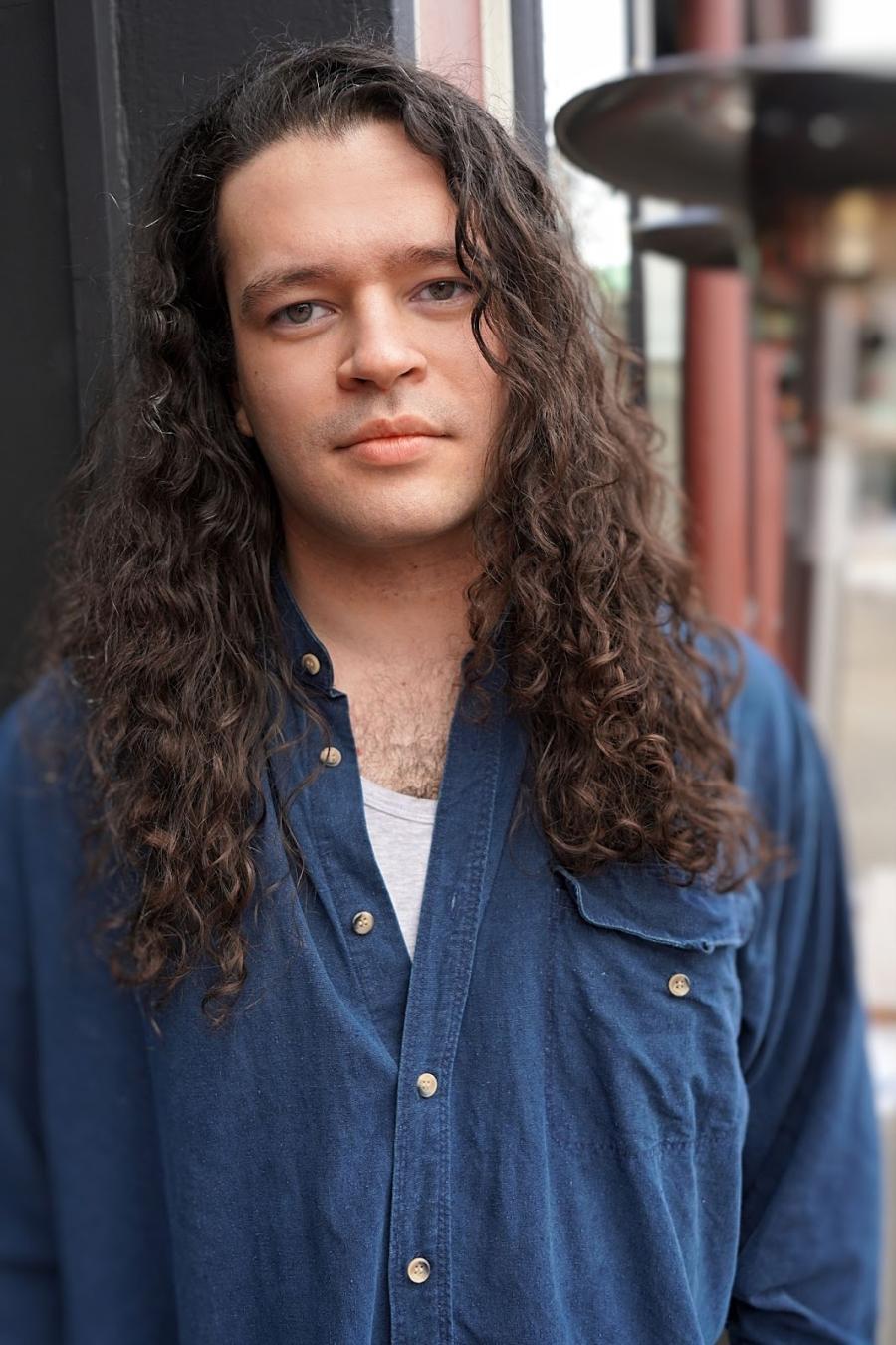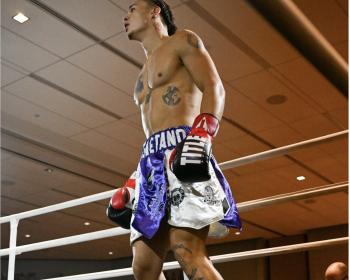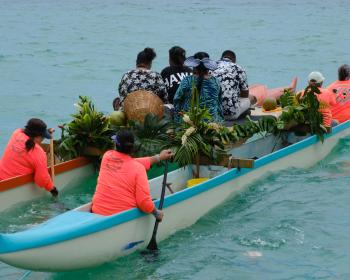In July 988, while visiting her homeland of Guatemala from her US home in Indiantown, Florida, Maria Elena Gaspar was detained by the Guatemalan police for 13 days. Her ordeal, presented here in her own words, is just one example of the continued repression of Kanjobal Indians in Guatemala.
My name is Maria Elena Gaspar. I war born on 25 May 1967 in Guatemala. I am a Kanjobal Indian. I have resided in the United States since 1981, and I am a temporary resident of the United States.
On 20 June 1988, I traveled with another Kanjobal Indian to Guatemala. I wanted to visit my relatives and consult with a doctor about a recurring illness. This was my first visit to Guatemala since 1981.
We spent the night of June 20 in Guatemala City and on June 21 traveled to Huehuetenango by bus. No one had warned me before leaving that I might encounter some problems or that I would be in danger. My traveling companion, Hermelinda Hernandez, had been forewarned before leaving the United States about the dangers of traveling outside Guatemala City.
We spent the night of June 21 in the town of Chantla, approximately 5 km from Huehuetenango in the school that I last attended before leaving Guatemala for the United States.
On June 22 I went to San Miguel to visit my grandparents, aunts and uncles and Hermelinda traveled to San Rafael to visit her relatives.
The following days were spent in relative calm, even though there were some encounters between guerrilla and army forces.
On June 30 I traveled to the town of Barrillas where my father owns a small ranch. I also have some distant relatives in this town.
On July 1 at 7:30 PM I went to the pharmacy in Barrillas to buy some items. While in the pharmacy, a man walked in and kept on staring at me. He eventually left and I did not make much of it. Approximately five minutes after I left the pharmacy, I was approached by three uniformed policemen in front of a cafeteria. They asked me to accompany them to the police station. I kept on asking them why I had to go and received no answer from them.
The police station was approximately three blocks away from where I was detained. By the time I got there I was pretty mad and demanded to know why they had brought me in. The police chief told me to "Calm down and have a seat." He also asked that I take every time I have in my shopping bag out, "one by one, very carefully." From their reaction I gathered they were afraid I might have a weapon in my bag.
The police chief also asked to see my cedula [identification papers] but I explained I had none since I had left Guatemala at age 13. Approximately one hour later, the same man I had seen at the pharmacy arrived. The police chief explained that he had accused me of being a subversive.
I started talking to him in Kanjobal, since I knew he was also Kanjobal Indian. I asked him: "Why did you tell them to bring me here?" "I know you," he said. The chief of police asked that he speak in Spanish so that he could understand what was being said.
"Mereces un castigo" [You should be punished], my accuser continued. "I'm from Barrillas. Don't you remember me? You must remember me from Concepcion, a year ago."
I kept telling him that I did not know what he was talking about, that I had been in the United States for the last seven years and showed him my temporary resident card.
"I'm a truck driver's assistant and usually travel from Barrillas to San Ramon." He kept on insisting that I belonged to the guerrillas and the first time he saw me was about a year ago when I, along with other guerrillas, had stopped his truck and took all his food and money. He described what I was wearing that day, faded blue jeans, a black-and-white plaid shirt, red bandana around my neck, men's boots and a gun around my hips. He also said at the time my hair was shorter and he could never forget the "mole on my upper lip or the scar on the side of my right eye."
He went on to say that I had stopped and assaulted trucks and buses on the same route four times during the last year and that approximately a year or so ago I had killed two soldiers on the road from Huehuetenango to Barrillas.
He finally said he was going to leave and would "leave everything to be captain," but that if he had found me alone some place, he would have killed me without ever contacting the police first.
I was told by the police chief that I could not leave and around 11:30 PM a person showed up and said I would have to accompany him to the army camp. He also said I would be questioned some more and then I would be judged for my crimes ("Justicia contigo," he said). At that point I thought they were going to take me outside the police station and kill me.
Shortly thereafter, a plainclothes man arrived in an orange truck. He said he'd be taking me to the army camp. He also informed me that the lieutenant and colonel were waiting. They offered me some bread and coffee. I was very hungry since I had not eaten or drank anything since lunch.
At this point I asked to confront my accuser, since I still believed I could straighten the situation and prove to him that he had mistaken me with someone else. My accuser, whose name I finally found out was Leopoldo Menchu, was brought over to the army camp at around 1:00 AM on July 2. He insisted it killing the two soldiers. I finally offered him money, since I did not know what else to do. He told me he would not sell himself to the guerrillas.
I was left alone in the cafeteria and then all the soldiers in the camp started to come in. They said they wanted to see what a subversive looked like.
At around 3:30 AM I was taken to a very small room. The only thing in it was a mattress. The soldiers kept an eye on me all the time and were instructed not to talk to me. There was a guard at my door all the time.
I was not able to sleep at all that night. It was very hard for me to comprehend what had taken place.
At 10:30 AM three plainclothes men arrived. From the guards' conversation I detected they were like secret agents. They told me not to worry, that they were there to help me, but that I would have to tell the truth.
They gave me something to drink and started interrogating me all over again. I kept telling them that I had been telling the truth and again showed them my temporary residence card. "Aren't you Magaly?" they asked. "That's what they call you. We have finally found you and this time you are not getting away."
I was interrogated all morning and part of the afternoon on Saturday.
At around 3:00 PM a guard came in and said I would be released and they would transport me back to San Miguel. I was really excited thinking I was getting out and started to wait for them to come back to take me to San Miguel.
When they finally came back it was 8:30 PM. I was then told that they were taking me to Huehuetenango. I was taken in a pickup truck by the same three plainclothes men and Leopoldo Menchu, my accuser.
The truck broke down about an hour after we left the army camp in Barilla and we had to spend the night inside the truck. It was very, very cold that night.
They worked on the pickup and were able to get it work around 9:30 AM Sunday, July 3.
This was the second night I had not been able to sleep. I really feared for my life.
At 1:30 PM Sunday we arrived at the Zona Military [Military Zone] is Huehuetenango. I was told that the commander would be in to see me shortly.
I was then taken to the camp's jail. It looked like a workshop. I was told to wait and the guard informed me that Leopoldo Menchu had been placed in a different cell where he would also be questioned.
They offered me some food but I declined. I was not really hungry and I wanted to talk to the commander first.
At 11:30 PM the commander arrived. Two men came in before he did and blindfolded and handcuffed me. A man with a very strong voice started questioning me then. He said he was certain I was the same person who had killed the two soldiers and Beer though he had seen my papers from the US I could have easily falsified them. I kept insisting I was telling the truth but I was not getting anywhere. The questioner said that the longer I took to tell the truth the longer I'd be detained.
The interrogation went on for some time and the commander finally told me I would have to spend the night there.
The room was very small, had no windows and again, the only furniture was a mattress which was covered with blood. There were some rats and for the third night in a row I did not sleep.
On Monday July 4 nothing happened. I was fed twice that day. By the end of MONDAY I began to lose all hope. At one point I asked a guard what they were going to do with me. "We will kill you one of these days," he said.
On Tuesday July 5 at about 4:00 PM, two guards walked in my cell. I was again handcuffed and blind-folded. The commander then came back and questioned me again. The interrogation went on for about an hour. Again, the same accusations were made, over and over. I finally told them that I had been telling the truth and I did not know what else to say. I also told them that I was ready to die and that I felt the situation was beyond my control.
I was then asked what my point of view was on Guatemala, I told him I was neutral and since I had left at age 13 I really had not given the matter much thought.
The interrogator then replied that he knew I was working against Guatemala and then left. The guards took the blindfold and handcuffs off.
On Wednesday, July 6, a doctor arrived around 8:30 AM. The doctor gave me some antibiotics and said I probably had some kind of intestinal virus or infection.
Around 11:00 AM a guard came in and said I was free to go, but it was not until 3:30 PM that the colonel finally arrived and took me to the military hospital.
All I had with me were the same items the military had allowed me to keep: my wristwatch, the clothes I was wearing and my crucifix.
At the hospital the doctor examined me and asked if I wanted to eat or take a shower. It had been almost a week since I had showered. The doctor said I could spend the night at the hospital and a specialist would see me Thursday morning. I told him I really wanted to see my relatives.
The same man who had taken me to Huehuetenango took me back to San Miguel. Before I left Huehuetenango I tried calling my father in the US. My younger sister answered and I did not want to alarm her so I did not tell her what I had gone through.
On the road to San Miguel we went through the town of Santa Eulalia. A man had just been killed by either the army or the guerrillas. I was afraid the persons who were transporting me might decide after all I was a guerrilla and the nightmare would begin again.
We finally arrived in San Miguel around 11:30 PM. My family in San Miguel was very alarmed since my relatives in Barrilla had called saying I had disappeared.
On Thursday, July 7, I rested all day. I still could not believe I had been set free and no physical harm had been done to me.
On Friday, July 8, a group of policemen arrived at the house to ask me questions about my ordeal. I explained everything to them.
Saturday, July 9, my relatives from Barrilla came to bring my suitcase. They said they had been looking all over for me but that the local police as well as the military had told them they had not seen or heard about me. My relatives also said they had sent a telegram to my parents in the US notifying them of my disappearance.
On Sunday, July 10, I went back to Huehuetenango. From there I was able to call my parents on Monday, and told them what happened. I also told them I was going back to San Miguel.
My parents arrived in San Miguel on July 13. The next couple of days were fairly quiet until to agents arrived from the Commission de Repatriados [Repatriated Commission], and informed my father that they knew I had been repatriated and that he would have to present me to the court to state my case.
On Monday, July 18, I appeared in front of the commission. I was informed that there had been a case of mistaken identity and I was free to go.
My parents and a US correspondent based in Guatemala drove me to Guatemala City and I left for the US on July 19.
It is very difficult to put into words the terror that I felt. I have had a hard time sleeping since my return to the US. The other night a cat was roaming around and its footsteps reminded me of the foot-steps of the prison guards.
The colonel who took me to the military hospital after my release admonished me to "forget everything that happened" and not to tell my story to the people in the US.
I feel though, that I must tell everyone about my experience. No one warned me about the dangers of going to Guatemala. Perhaps someone will read this and think twice about going there. I know it will take many years before I consider going back.
Article copyright Cultural Survival, Inc.



